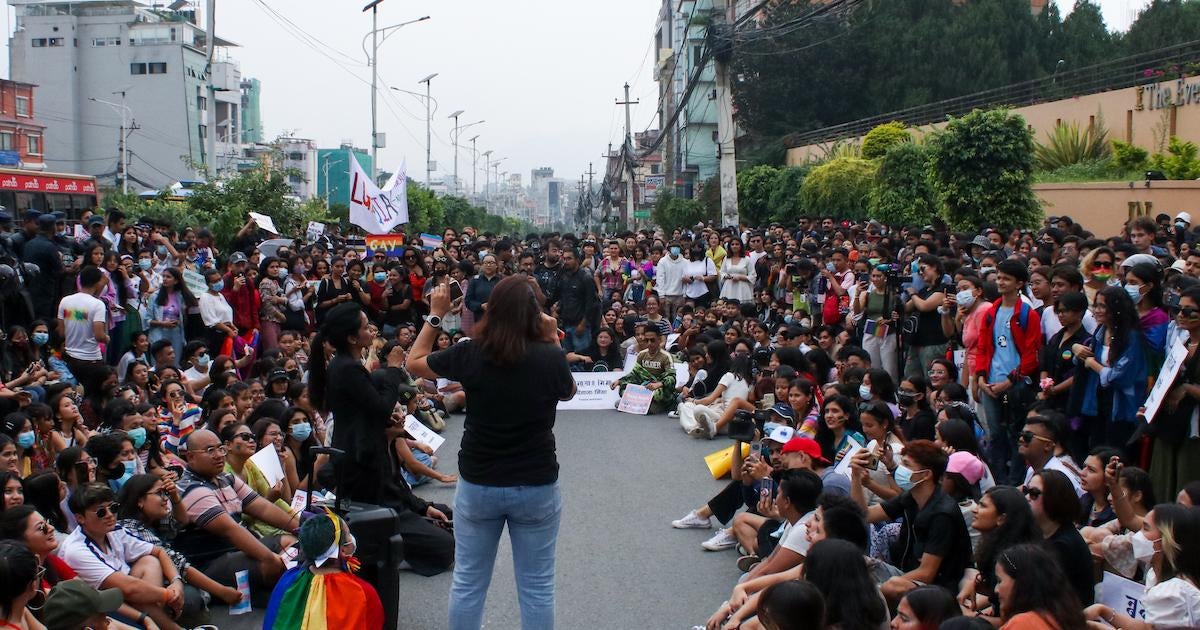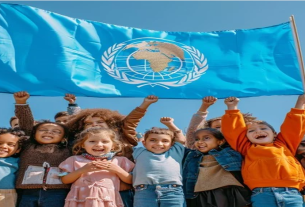(New York) – The Supreme Court of Nepal has instructed the government to recognize the same-sex foreign spouse of a Nepali citizen, Human Rights Watch said today.
The court also instructed the government to urgently consider a 2015 court-ordered report that recommended broader recognition of same-sex relationships. Building on judgments from 2007 and 2017 that recognized rights of lesbian, gay, bisexual, and transgender (LGBT) people, the court ruled that failure to recognize same-sex spouses violates Nepal’s constitution and its international human rights obligations.
“The Supreme Court has again drawn attention to the government’s lagging implementation of court orders to recognize same-sex relationships,” said Kyle Knight, senior LGBT rights researcher at Human Rights Watch. “Nepal has a global reputation as a leader on LGBT rights, and the government needs to live up to it with a tangible policy change.”
The case, Adheep Pokhrel and Tobias Volz. v. Ministry of Home Affairs, Department of Immigration was brought by a gay couple – Pokhrel, a Nepali citizen, and Volz, a German citizen. The pair were legally married in Germany in 2018. They applied for a non-tourist visa for Volz in July 2022, which would entitle him to the same rights to live in Nepal as a married heterosexual spouse in the same circumstance. Nepali authorities denied the request on the grounds that the application form reads “husband” and “wife” and does not recognize two husbands.
Pokhrel and Volz attempted to register their German marriage with Nepali authorities, who denied their request. They applied again for a non-tourist visa for Volz in August 2022, submitting the Supreme Court’s judgment in Suman Panta v. Ministry of Home Affairs, Department of Immigration, et al. (2017) to demonstrate the court’s previous orders to grant foreign same-sex spouses non-tourist visas, but the authorities again denied the application.
In 2017, a lesbian couple – Suman Panta, a Nepali, and Leslie Luin Melnik, an American – took their case to the Supreme Court when the American spouse was denied a non-tourist visa. The court ordered the government to issue the visa, ruling that: “[I]f a foreign national claiming to be married to a Nepali citizen submits a marriage registration certificate and the Nepali citizen confirms the marriage in their visa application, then the issuance of visa to the foreign national cannot be denied.”
That case, and Pokhrel and Volz’s case, drew significantly from other Supreme Court judgments, including the landmark case of Sunil Babu Pant et al. v. Nepal. In 2007, in response to a petition from four LGBT activists, including Sunil Babu Pant, Nepal’s Supreme Court ordered the government to form a committee to study same-sex relationship recognition laws around the world.
The justices wrote: “[W]e hold that it is an inherent right of an adult to have marital relations with another adult with her/his free consent and according to her/his will. Same sex marriage should be viewed from the viewpoint of interest and rights of the concerned people as well as that of the society, family and all others.”
The court-ordered committee report, published in 2015, recommended that “the Government of Nepal remove the legal provision that marriage can only occur between a man and a woman and that it embrace the norm that a marriage can occur between two persons, and to grant legal recognition to same-sex marriage on the basis of the principle of equality.”
Now, in Pokhrel and Volz’s case, the justices ordered the Immigration Department to once again grant the foreign spouse a non-tourist visa, and wrote: “Given this background, it appears that same-sex marriage should be considered a subject that is envisioned by the constitution and in accordance with the Constitution of Nepal, the decisions made by this Court, the report by the committee formed in accordance with the order by this Court, and the human rights treaties ratified by Nepal.”
The government of Nepal should live up to its reputation as a leader on LGBT rights and propose legislation to protect the rights of LGBT people, Human Rights Watch said. The Supreme Court is currently considering other LGBT rights cases, including a case brought by Rukshana Kapali, a transgender woman who is petitioning to be legally recognized as a woman.
“It has been 16 years since the Supreme Court ordered a government committee to study the issue of recognizing same-sex relationships and eight years since that committee told the government to take concrete and comprehensive action to recognize same sex relationships,” Knight said. “The government should urgently examine the committee report and the court’s comprehensive analysis of legal changes that would afford same-sex couples in Nepal their equal rights.”



